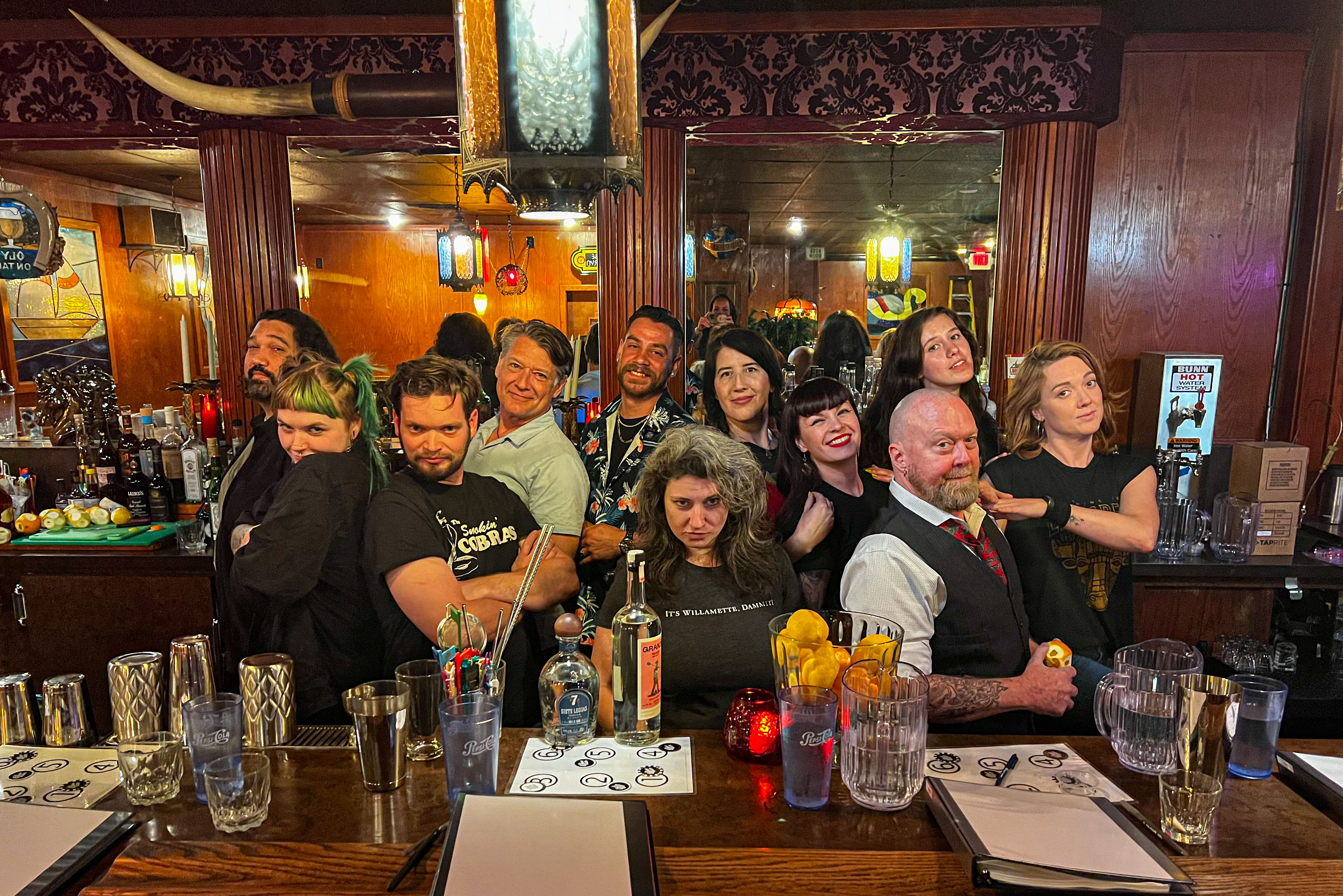Oregon and Washington Take Another Stab at Replacing the I-5 Bridge

Image: Peter Ryan
Half a decade ago, the multistate effort to replace the aging Interstate Bridge across the Columbia River collapsed in truly spectacular fashion, all pointed fingers and public fury—and nearly $200 million spent on plans that never got beyond a literal drawing board.
Blame flew in all directions, over light rail Oregon insisted on and Washington emphatically did not want, over tolls no one particularly felt like paying, over design schemes that collapsed under scrutiny and ever-ballooning price tags.
In 2020, the two states will try, try again, intent on building a bridge officials pledge will relieve the soul-crushing I-5 traffic gridlock, withstand the Big One, and be a boon to the regional economy.
And they promise that this time—cross their hearts and hope to die!—things will be different.
“You don’t move towards projects like this without a champion,” says Washington State Sen. Annette Cleveland, a Democrat whose central Vancouver district is at the tangled nexus of the bridge drama. Cleveland wants to be that champion. She’s prepared to issue a full-throated mea culpa to all of Oregon on behalf of Washington state, since discord among the members of the Southwest Washington delegation led their state to pull out of the project back in 2013.
For the past four years, a group of nine Vancouver-area lawmakers have been quietly meeting to jump-start the bridge conversations, motivated by an 11 mph rush “hour” that starts at 1 p.m. and doesn’t let up until well after dark. Cleveland says eight of the nine have agreed on a vision that builds on the work begun more than a decade ago. (The holdout is Republican State Rep. Vicki Kraft, whose district covers parts of Vancouver east of I-205.)
Now, a crew of Oregon lawmakers is joining the talks, spurred by the literal cost of inaction: the two states must either show they are moving forward by 2024 or repay the feds the $139 million fronted for planning costs of the previously aborted effort.
In their favor: evolving attitudes on tolling. Seven years ago, many in the ’Couv were horrified at the mere suggestion they might have to pay a toll to cross the river to Portland. Since then, congestion pricing—tolling during peak travel times, with a lesser or no fee charged at other times—has taken root in global metropolises, including London and Stockholm. Seattle rolled out congestion pricing on its new Alaskan Way Viaduct in November 2019, bringing the concept closer to home.
Meanwhile, the drumbeat of fully terrible news about climate change has only gotten louder since the last time the I-5 bridge was talk-radio fodder, lending new urgency to the debate over making room on the bridge for public transit. Cleveland says this time, some form of public transit is on the table and not coming off. They were encouraged by an August 2019 letter to governors Kate Brown and Jay Inslee from a group of Portland-area power brokers floating the possibility of a cheaper high-speed bus with a dedicated lane instead of light rail.
Still, last time the Columbia River Crossing was in the headlines, Barack Obama was the president. With his successor not known for being a fan of either the West Coast or public transit, it’s no sure thing north of $1 billion in bridge bucks is coming from the feds.
Bridge replacement would also mean years of construction-related upheaval. Is a downtown Vancouver that has bet big on its waterfront, with a striking pier, a 7.3-acre park and new restaurants eager for a scenic view of years of construction? On the other hand, done right, the completed bridge could wind up as a design selling point for the ’Couv, says Kris Strickler, the newly installed head of the Oregon Department of Transportation.
And there’s no guarantee the politicos now at the table will still be there a year from now. Those who go public with pro-light rail and/or tolling sentiments might not survive November’s campaigns, says State Sen. Lew Frederick, a North Portland Democrat on the bistate bridge committee.
“The election for the folks in Washington [state] may be key to what kind of decision or compromise is made,” Frederick says. “Will they be running on how they feel about the bridges? They very well may.”




